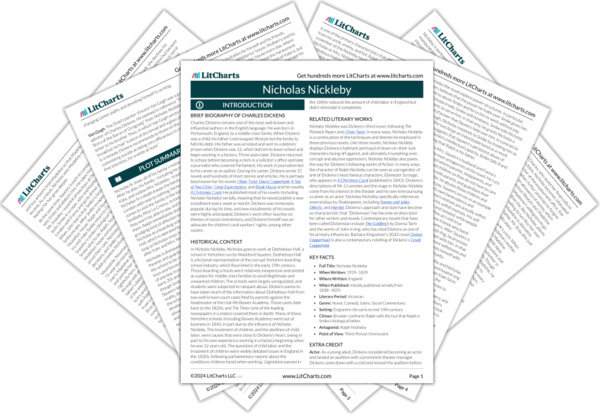The trapdoor in Ralph’s home symbolizes the secret of Smike’s birth and the monstrosity of his father, Ralph. Early in the novel, Smike describes to Nicholas what he can remember of the home where he briefly stayed before he was brought to Dotheboys Hall. Smike says there was a trapdoor in the ceiling, and the trapdoor terrified him. He frequently piled clothes on top of himself to avoid looking at it. In that sense, the trapdoor symbolizes the horror and constant fear that Smike felt when he was in Ralph’s home. That horror comes from imagining, in the throes of childhood terror, what might be lurking behind that trapdoor. For Smike, that door remains shut in his memory because he never learns that Ralph is his father. Though he understands Ralph’s evil—hence the persistence of his childhood terror into the present—Smike he never comes face to face with it in the way he might had he learned the truth of his paternity.
At the end of the novel, Ralph hangs himself from a hook on a ceiling beam directly under that same trapdoor. Notably, in that scene, the trapdoor remains closed. Ralph does not peer behind the door to see what is there. In that sense, while Ralph seems to recognize his monstrosity after he learns that he persecuted his own son, he doesn’t confront or fully acknowledge his worst characteristics. Instead of grappling with that monstrosity and peering into his own psyche—which would entail symbolically peering behind the trapdoor—Ralph refuses to honestly examine himself and his shortcomings. Instead, he kills himself and keeps the trapdoor firmly clamped shut, thus avoiding a true reckoning with his own monstrosity, which might have allowed him to reform.








